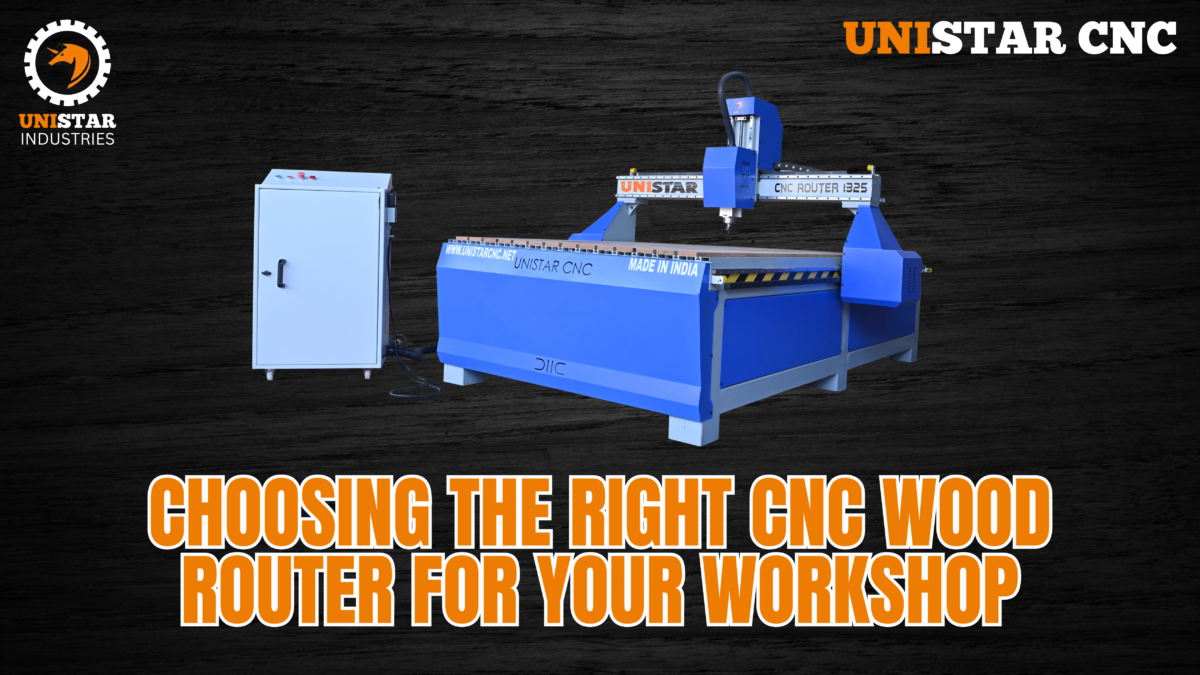Selecting the perfect CNC Wood Router Machine for your workshop is a crucial decision that can significantly impact your woodworking projects. Whether you’re a beginner looking to start your first projects, a hobbyist aiming to expand your skills, or a professional seeking to upgrade your equipment, finding the right CNC wood router involves considering your needs, budget, and experience level. This guide will help you navigate these factors to make an informed choice.
1. Assessing Your Needs
Project Types: Start by considering the types of projects you plan to undertake. Are you focusing on small, intricate designs like custom signs or large-scale furniture pieces? Understanding your primary use will help you determine the size, power, and capabilities needed in a CNC wood router.Materials: Think about the materials you’ll be working with. While most CNC wood routers are designed for wood, some can also handle plastics, composites, and even light metals. If you plan on working with a variety of materials, you’ll need a more versatile machine with adjustable settings.Workspace Size: Evaluate the space available in your workshop. CNC wood routers come in various sizes, from compact desktop models to larger industrial machines. Ensure you have enough room not just for the machine itself but also for safe operation and material handling.
2. Considering Your Budget
Entry-Level Routers: If you’re new to CNC woodworking, starting with an entry-level router might be wise. These models are typically more affordable, user-friendly, and offer sufficient functionality for learning and completing basic projects. Prices usually range from $500 to $2,000.
Mid-Range Routers: For hobbyists or small business owners, a mid-range CNC wood router offers a balance of cost and capability. These machines generally provide more power, larger work areas, and advanced features like automated tool changes. Expect to spend between $2,000 and $10,000.
High-End Routers: Professionals who require precision, speed, and versatility might consider high-end CNC wood routers. These models are equipped with advanced features, such as multi-axis control and industrial-grade components, designed for continuous, heavy-duty use. High-end routers can cost anywhere from $10,000 to over $50,000.
3. Matching the Router to Your Experience Level
Beginners: If you’re just starting out, look for a CNC wood router with an intuitive interface and plenty of online tutorials or support communities. Many entry-level models come with simplified software, making it easier to learn the basics of CNC operation.
Intermediate Users: If you have some experience but are looking to expand your capabilities, consider a router with more advanced features, such as a larger work area, higher spindle power, and compatibility with different types of design software.
Experienced Users: For those with extensive CNC experience, a high-end router with customizable options, faster speeds, and precision control will allow you to tackle more complex and detailed projects. Look for models that offer flexibility in terms of software integration and material handling.
4.Evaluating Key Features
Spindle Power: The spindle is the heart of a CNC router, determining how well it can cut through different materials. Higher spindle power allows for faster cutting and the ability to work with harder materials.
Work Area Size: Ensure the work area is large enough to accommodate your typical project sizes. If you work on large pieces, such as furniture components, you’ll need a machine with a larger table.
Software Compatibility: The software used to design and control your CNC router is just as important as the hardware. Make sure the router is compatible with the design software you prefer, and check for ease of use, especially if you’re new to CNC.
Build Quality: The machine’s build quality will affect its durability and precision. Look for routers made with sturdy materials like aluminum or steel frames and high-quality components that can withstand frequent use.
5. Considering Support and Upgrades
Technical Support: Ensure the manufacturer or distributor offers reliable technical support and a comprehensive warranty. Good customer support can be invaluable, especially when you’re troubleshooting issues or learning to use the machine.Upgradability: As you grow in your woodworking skills, you may want to upgrade your machine. Consider whether the router allows for future upgrades, such as adding a more powerful spindle, a rotary axis, or an automated tool changer.


Add a Comment